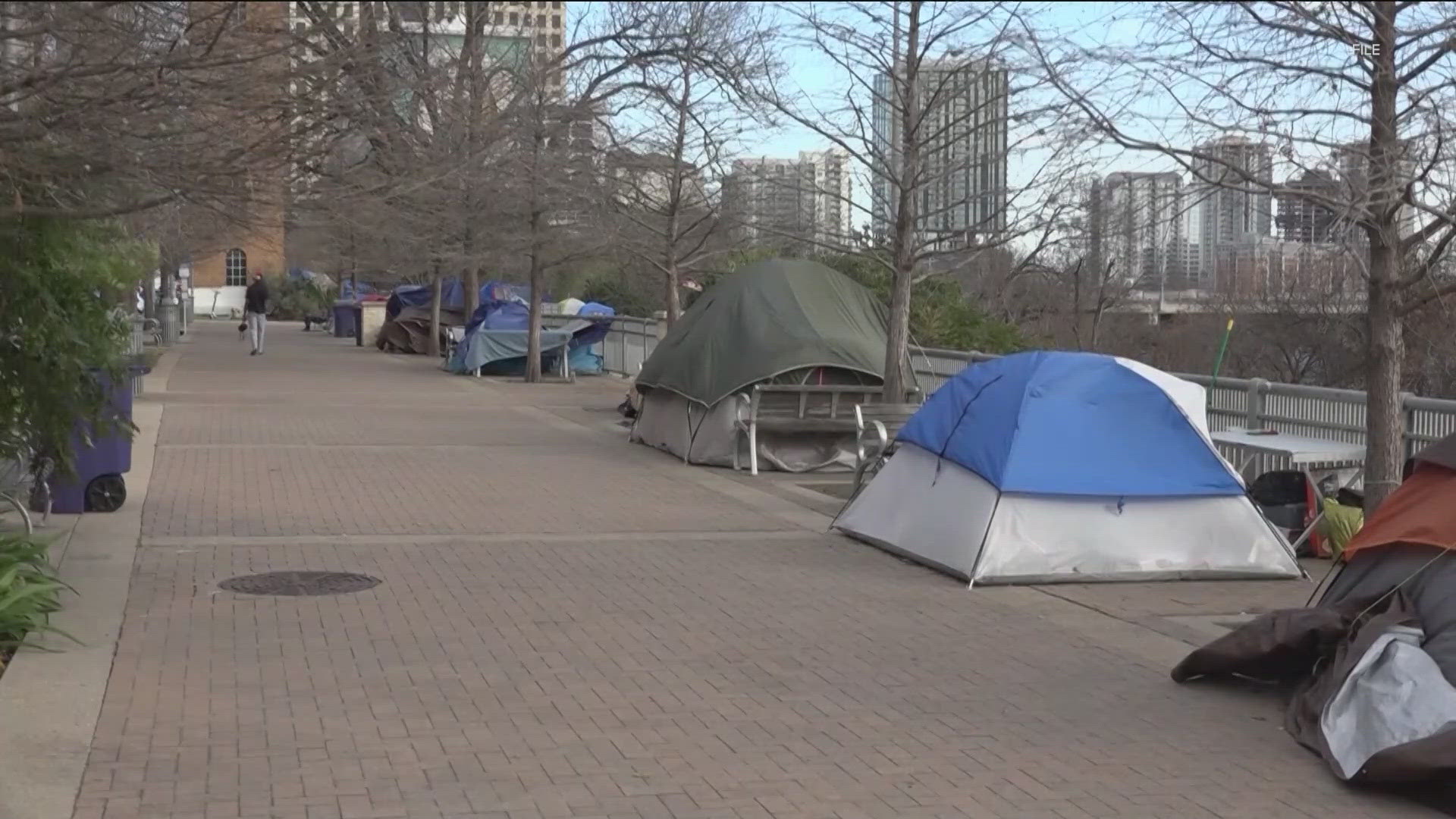AUSTIN, Texas — Cities like Austin can now legally ban homeless people from sleeping in public places.
The U.S. Supreme Court ruled that outdoor sleeping bans don't violate the Eighth Amendment in a 6-3 decision on Friday.
The decision comes as a record number of people in the U.S. are experiencing homelessness. Recent data shows more than 650,000 people are living outdoors. Austin police have issued more than 900 citations since the city reinstated its ban on public encampments, which makes lying down on public property a misdemeanor.
"Sleep is a biological necessity, not a crime,” Justice Sonia Sotomayor said in her dissent. "For people with no access to shelter, that punishes them for being homeless. That is unconscionable and unconstitutional.”
What's next for Austin's homeless population?
Friday's ruling means a similar camping ban law in Austin remains legal.
Austin City Council relaxed restrictions in 2019 before voters opted to reinstate the ban in 2021. The homeless outreach organization ECHO estimates 6,200 homeless people currently live in Austin. Those punished by Austin's ban face a fine of up to $500.
Mark Hilbelink, the executive director of the Sunrise Navigation Center, said he believes the ruling will have some ramifications moving forward, but because a camping ban has been in place for years, he doesn't think it will impact as much.
"We've been dealing with this already. The only real thing that could probably happen is that attitudes continued to kind of be more extreme ... And those extreme kind of attitudes don't usually lend themselves towards positive solutions," Hilbelink said.
Hilbelink does, however, think these bans criminalize those who need help.
"We need to continue to have very practical conversations that include the amount of people that we have and the amount of interventions that we're funding. Because those two things clearly, whether you are on a liberal or conservative side, don't aren't matching up," Hilbelink said.
District 6 Councilmember Mackenzie Kelly, who recently took part in cleaning up a homeless encampment in northwest Austin, celebrated Friday's ruling.
"Having personally visited numerous homeless encampments since day one of my tenure, I’ve pledged unwavering commitment to cleaning up our city and ensuring compassionate and safe resources for those experiencing homelessness, because living outside in abhorrent conditions lacking basic sanitary needs is anything but humane," Kelly said in a statement.
In an interview with KVUE, she explained that her support of the ban is not by any means labeling a person who is homeless as criminal, but rather further protecting public spaces and private properties.
"I do believe that this will force the city of Austin to do more to help end the crisis," Kelly said. “We've come a long way since 2021 in providing a diverse, diverse portfolio of ways to help get individuals experiencing homelessness housed. That doesn't mean we're done. We have a long way to go.”
Austin's Homeless Strategy Office released the following statement regarding the ruling:
The City of Austin recognizes the importance of the United States Supreme Court ruling in City of Grants Pass, Oregon v. Johnson. The case relates to the ability of local governments to enforce laws prohibiting camping on public property and the ruling has important implications for municipalities and individuals experiencing homelessness across the nation.
The City of Austin recognizes that homelessness is not a crime and therefore reaffirms its commitment to developing comprehensive solutions that prioritize housing, support services and dignity for all individuals. The City has a record number of homeless shelter beds today, more than 2,200 people are benefiting from City-funded rapid rehousing programs, and over 1,000 new housing units are being built across Austin for individuals experiencing homelessness.
Enforcement of applicable laws related to camping in public places is one of many tools and solutions used by the City in appropriate circumstances. We will continue working with neighbors and stakeholders to ensure actions and policies balance public safety with people’s rights and needs.

